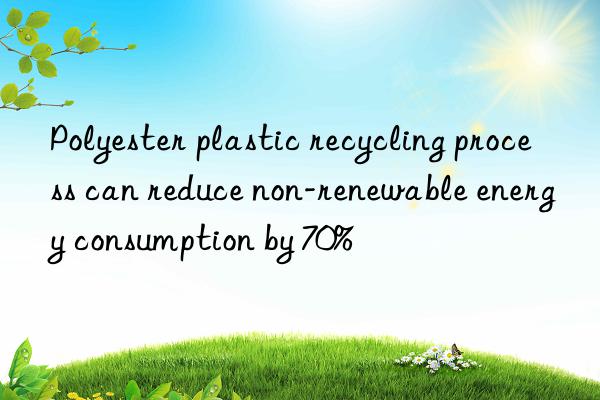
The reporter learned from the University of Science and Technology of China on June 25 that the team of Professor Fu Yao and Associate Researcher Deng Jin of the school cooperated with foreign counterparts to realize waste PET (polyethylene terephthalate) through chemical depolymerization of acetic acid Plastic upcycled. Relevant research results were recently published in Nature Communications.
PET plastic has brought great convenience to human life, but it also faces problems such as large consumption and difficulty in recycling. The downcycling of "waste beverage bottles to polyester textiles" can be realized through the current mature PET recycling methods. However, due to the limitations of process technology and production costs, it is currently difficult to realize recycling and upgrading recycling in industry.
Researchers use acetic acid to depolymerize waste PET plastics. The depolymerization of PET in organic acid has gone through a melting-dissolving-precipitation process. Through the acetic acid depolymerization scheme, the researchers realized the efficient recovery of various waste PET materials directly to high-purity terephthalic acid. Another product of PET acetic acid depolymerization is the third-generation environmentally friendly strong solvent ethylene glycol diacetate with high added value. The preparation scheme of acetic acid depolymerization waste PET material is also very economically attractive for the production of terephthalic acid and ethylene glycol diacetate, which are commonly used in industry.
On this basis, the researchers proposed a closed-loop technical scheme of "depolymerization of waste PET acetic acid-polymerization regeneration", and carried out a life cycle assessment of the process. The results show that compared with the process of preparing PET polyester from fossil resources, the non-renewable energy consumption and global warming potential of this process can be reduced by more than 70% and global warming potential by more than 40%, respectively. lowest.
This achievement provides a new way to realize the closed-loop recycling of waste PET plastics and polyester fabrics with lower industrialization cost, strong economic attractiveness, greener and lower-carbon treatment process, and stronger tolerance to raw material sources.
It is reported that the scientific research team has initially implemented a kilogram-level engineering experiment, and at the beginning of the experimental design, it chose acetic acid, the solvent for the current industrial production of terephthalic acid, as the solvent for decomposing waste polyester. Production equipment and process parameters. The research results are based on the existing industrial equipment, and can be quickly verified and promoted through relatively simple transformation. (Reporter Wu Changfeng)



 微信扫一扫打赏
微信扫一扫打赏
